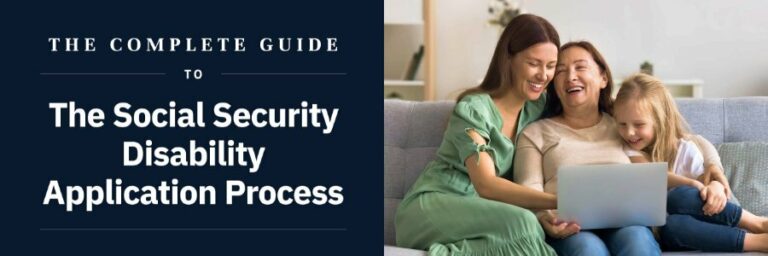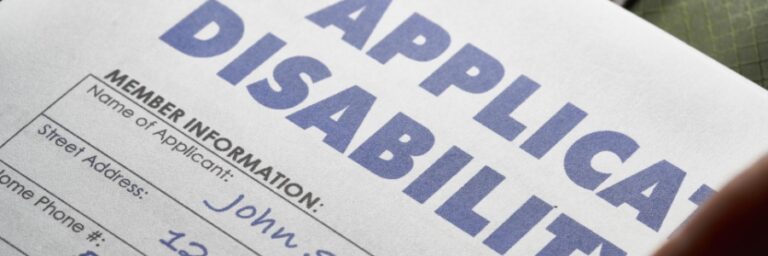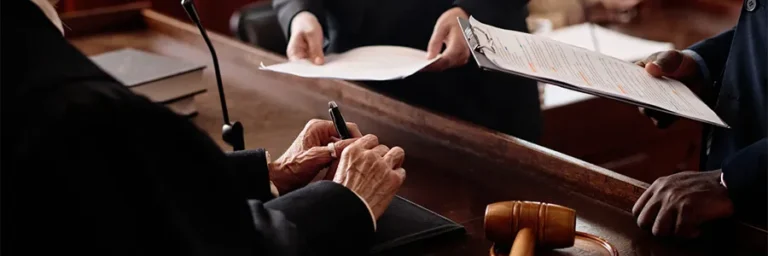
What You Need to Know About Disability Hearings over the Phone or Video
Is SSA still entertaining disability hearings over the phone or video?
At the start of the COVID-19 pandemic in March 2020, the Social Security Administration (SSA) began offering disability claimants the option for telephone hearings. This was a necessary pivot as the lockdowns began since the crowded hearing offices were no longer a safe option for conducting the crucial business of adjudicating disability claims in person. The hearing offices where Social Security conducts hearings are called OHO (Office of Hearings Operations). OHO offices are often located in office buildings with tight quarters — a dangerous prospect for the SSA employees and administrative law judges who staff them, and for the disabled, vulnerable, and often elderly people who attend hearings.
The SSA pivoted to remote hearing options relatively quickly at the start of the pandemic. By the middle of March 2020, SSA offices had gone fully remote, offering disability claimants and their attorneys the option to proceed via telephone. As it turns out, OHOs were already well situated for remote disability hearings, since almost all case files are digital, and remote hearing monitors were already being used to record the audio of in-person hearings. While this was not ideal for people who were anticipating in-person hearings, remote hearings allowed the agency to avoid the types of delays that other courts experienced.
As of the time this article was published (February 2023), SSA still offers the possibility of having your disability hearing over the phone.
A lot of people have benefited from the convenience of phone or video hearings
Is attending a telephone or video hearing mandatory?
It’s important to emphasize that telephone hearings are not mandatory. If you are waiting for a hearing, you may elect to undergo a hearing by phone or video, or an in-person hearing. Social Security strongly encourages choosing a remote hearing option, although it is not required. When OHO offices reopened for limited in-person hearings in March 2022, they had a significant backlog of disability claimants who refused the remote hearing options. Those who agreed to a telephone or video hearing did not have to wait in the longer line, and often had their cases decided (and approved) over a year before those who wanted an in-person hearing only.
Moving forward, it appears that the judges will offer in-person hearings on a limited basis only on certain days, with some judges only conducting remote hearings. Those who agree to a phone or video hearing will likely face a shorter wait time. In fact, the remote hearing options allowed the Bay Area OHO offices to drastically reduce hearing wait times. For example, prior to the start of the pandemic, it was taking Oakland, San Francisco, and San Jose offices approximately 18 months to schedule a disability hearing from the date of a hearing request. Currently, we at LaPorte Law Firm are experiencing a reduced wait time, especially at the Oakland OHO, where cases are scheduled within six months or less of a hearing request where our client agreed to a remote hearing. Because many disability claimants are interested in obtaining the quickest possible hearing as they face the financial strain of job loss and medical bills, the remote options have been beneficial to many of our clients.
Should You Agree to a Telephone or Video Hearing?
Advantages of telephone or video hearings
There are many advantages to agreeing to a phone or video hearing. As discussed, you will likely receive a much quicker hearing date, so if time is a factor in your decision, a remote hearing is the best option.
Remote hearings are also more convenient. Before the SSA began offering remote hearing options, disability claimants were required to attend their hearings in person. Most OHO offices, like San Francisco, San Jose, and Oakland, are located in federal buildings located in the downtown core of major metropolitan areas. This means claimants were facing rush hour traffic, costly paid parking, public transportation delays, long security lines, and other stressful hearing day variables. Some of our clients would even do a “test run” a few weeks before the scheduled hearing just so they can better understand the best way to arrive at the hearing office at their scheduled time.
Every disability attorney has a horror story about a client who misjudged the amount of time it takes to get to a hearing office and through the federal security screening. If a claimant forgot their ID, or had an expired ID, they would be denied entry by the rigorous federal building security screening process, which is similar to the TSA at an international airport. Our office used to advise clients to arrive at least an hour early to account for time in the security lines.
With remote hearing options, disability claimants can undergo hearings from the comfort of their homes, with quick access to medications and their restrooms. If a claimant has mobility issues, they no longer need to put themselves through a physically demanding commute to a hearing office. They save themselves the expense of expensive downtown parking garages, the possibility of a ticket with downtown street parking, or the fare for BART, light rail, or MUNI. The judges are conducting hearings from the comfort of their homes too, and the comfort of the judge assigned to your case should potentially factor into your consideration.
After nearly three years of representing hundreds of clients at their remote disability hearing, we believe that remote hearing is a good option for many clients. The Bay Area OHOs in San Jose, Oakland, San Francisco, and San Rafael are conducting fair and thorough remote hearings. We have not noted a change in approval rates post-pandemic. While an in-person hearing is more personal than phone or video hearings, well-established case law suggests that judges must not “play doctor” by attempting to diagnose disability claimants from the bench. A claimant’s medical records are the primary form of evidence, not a judge’s personal observations of a claimant’s physical or mental condition. A judge not only listens to a claimant’s testimony, but they also must review the medical records in each case to determine the level of disability. Therefore, it is more important that your medical records accurately portray your condition. While in-person hearings were more personal by their nature, remote hearings are still fair and give due process under the regulations.
If you are waiting for your hearing date, you should consult a disability attorney if you are considering whether to agree to a remote hearing option. A disability attorney can advise you whether a phone or video is the best option for you and go over how each option works. A disability attorney often appears in front of the same administrative law judges, and they have intimate knowledge of the daily operations of their local OHO offices, including how to submit the COVID agreement form and updated medical records.
How do I choose what type of hearing to attend?
After you file your request for hearing, your local OHO will mail you a packet containing the COVID agreement form. You should complete and return the form as soon as possible to avoid delays with scheduling. This form allows you to select the preferred hearing option (phone, video, or in-person). If you are represented, your attorney can submit this on your behalf.
COVID Hearing Agreement Form – Telephone and Video Options
Make sure to include the correct telephone number or email address when filling out the form, sign and date the form, and return it to your assigned hearing office as soon as possible. The hearing office cannot schedule your remote hearing until you agree to the phone or video option. This form should be submitted well in advance of your hearing date.
Advantages of video hearing
Choosing a video hearing is a good option for those who want a face-to-face interaction with the judge. In general, video hearings are more personal than phone hearings. However, OHO offices do not record the video portion of the hearing, only the audio, as with phone and in-person hearings. Like the telephone hearing, the video option allows the local OHO to schedule your hearing without delay.
Video hearings are conducted via Microsoft Teams, a video conferencing software similar to Zoom. Microsoft Teams has a mobile and web version. We encourage our clients to download the software prior to the hearing to test the functionality, and we will conduct a prehearing preparation appointment with our clients in advance of the video hearing so they know what to expect at the hearing.
The video option is a matter of personal preference. We have not seen evidence that approval rates differ for phone, video, or in-person hearings.
Don't overlook the challenges
This article has discussed many of the positive aspects of remote hearings, including decreased wait times, and the cost and convenience of the remote options. However, there are a few potential drawbacks to be aware of.
The first is that electing a remote hearing option may lead to your case getting transferred to another hearing office in a different part of the country. Because Social Security is a federal area of law, your case is not confined to your local jurisdiction. Administrative law judges throughout the country may hear your case.
In general, hiring a local attorney who practices before and knows the local administrative law judges is advantageous. An attorney will help prepare you for your hearing, including what to expect and what types of questions the judge may ask. When a local attorney has appeared before the local judges many times, the attorney will be familiar with the intricacies of each judge’s process, including the length of the anticipated hearing, how each judge conducts the hearing, whether the judge poses most of the questions or permits the attorney to question the client directly, and what type of evidence the judge is persuaded by.
Due to the turnover and retirement of several administrative law judges, many cases in the Bay Area were recently transferred to other jurisdictions, so it’s important to understand that by agreeing to a telephone or video hearing, your case will potentially be transferred to another OHO office. However, our experience with non-local judges thus far has been positive. The SSA agency and OHOs across the country hold fair hearings and apply the same rules as the local judges, so you will get a full and fair hearing even if your case is transferred to another OHO office.
The other potential challenge with video hearings is there may be technical difficulties. Many people are not familiar with Microsoft Teams. Also, a video hearing relies on the judge, claimant, and attorney having good internet service. For people who live in rural areas, video hearings may present a challenge. If your internet connexion is unstable or not fast enough, you may prefer to conduct the hearing from a different location or opt for an in-person hearing.
If you have agreed to a video hearing, make sure that the OHO has your correct email address and that you received an email with an invitation to your hearing. If your hearing is a few days away and you have not received your hearing notice, check your spam folder. Call your assigned OHO office if you cannot find the invite anywhere in your inbox and ask them to send another hearing link. Once received, make sure to accept the invitation so the hearing office knows you will attend your hearing.
Regardless of which type of hearing you choose, remote or in-person, it is important to stay in constant communication with your local hearing office while your case is pending. If your contact information changes, you should contact the hearing office to let them know. When you receive the COVID agreement form, make sure to fill it out and return it as soon as possible. If you have an attorney, call them with any questions you have so they can guide you on your hearing options. Your attorney will also help ensure that the COVID agreement forms are properly submitted, and that any changes to your email address or phone number are properly submitted. This helps avoid delays on the day of the hearing by tracking down the correct contact information. You also make the judge happy by providing all the requested information and being ready to testify at the time of your hearing. When a hearing is postponed because a disability claimant cannot be reached, this also takes time away from those who are waiting in a long line for their hearing day. The SSA is a huge agency processing thousands of cases, and it takes cooperation from everyone to ensure that hearings run on time.
Best Practices for Disability Phone Hearings
By putting all the odds on your side, you may increase your chances of having your case approved. Here is a list of tips on how to best prepare for your disability phone or video hearing.
- Be ready at least 45 minutes before the hearing. The judge may be ready to start the hearing early due to a prior cancellation, and administrative law judges and their staff appreciate flexibility.
- Have a plan for the hearing day. Choose a good, quiet place to attend the hearing. If you know a certain area of your home has the best cell service or Wi-Fi signal strength, plan to take the hearing from there. Let family members and housemates know that you will need privacy for the duration of the hearing.
- Switch off spam blockers that could send the call to voicemail. The SSA will call from an unrecognized phone number, so make sure your phone does not block this important phone call.
- Charge your phone or laptop so that it can accommodate a conversation of at least two hours. Most hearings last one hour at the longest, but some hearings are delayed and start late. You should factor in additional time for a prehearing preparation call with your attorney.
- Be prepared to answer questions about your past work (any work you have performed in the past 15 years). You should also be aware of your alleged onset date (the day you told the SSA you became disabled), the significance of that day, and why you feel you are unable to work since that day. You should also be generally familiar with your treatment history and current medications. You are not expected to know exact treatment dates, legal terms, or medical terms. Review our article on the types of questions asked at a disability hearing.
- Be patient with technical difficulties. If the phone call disconnects, hang up and wait for the hearing office to call you back. Do not attempt to call the OHO or your attorney to avoid a busy line.
- Prior to the hearing, consult with your attorney about your medical records and to prepare to answer the judge’s questions.
- Avoid crosstalk and wait for the judge or attorney to completely finish the question before you begin each response. The hearing is being recorded so if there are issues with the transcript, your hearing might be rescheduled.
- Be attentive throughout the course of the hearing. Even if your part of the testimony is concluded, the judge may return to you with a clarifying question.
How to Have a Successful Disability Video Hearing?
- Choose your most trustworthy device (desktop or mobile phone).
- Be well versed with MS Teams. Install and learn how to use the app prior to the hearing.
- Ensure that the internet connection is excellent and have a plan for where to log in to the hearing.
- Prior to the hearing, accept the calendar invitation to the video conference.
- Ensure your device is fully charged before your hearing.
- Choose a good, quiet place to attend the hearing where you will not be interrupted by children, pets, housemates, apps, TVs, etc.
- When responding to the judge, look at the camera on your device, not the video on the screen.
- Set up your device so the camera is at eye level, preferably set on a hard surface like a desk or countertop.
FAQs
If you miss your disability hearing, your case may be dismissed unless you provide a good cause reason for failing to appear. You should contact your local OHO right away if you missed your hearing, and respond within 10 days from the notice to show cause for failing to appear.
Request to Show Cause for Failure to Appear
You should also contact a local attorney right away to discuss your options. You may be able to avoid a dismissal if you have a good reason for missing the hearing. An attorney can counsel you on the regulations governing an administrative law judge finding good cause for missing your hearing.
It’s important to note that you will be asked to show good cause for failing to appear at your hearing only if you miss the hearing entirely. If there are technical difficulties such as phone or connectivity issues, your hearing will be postponed and rescheduled.
If an important legal issue arises during the hearing, such as the amendment of an alleged onset date, the judge will go off the record and allow time for a confidential and private conversation between you and your attorney. The hearing will then start where it left off. Alternatively, the judge may grant additional time for your attorney to submit a written statement after the hearing, which gives you and your attorney time to confer at the conclusion of the hearing.
The judges do not have set deadlines for deciding or writing their decisions. Anticipate one to two months to receive a decision after the hearing depending on the judge’s caseload.
The OHO uses an electronic filing system called Electronic Records Express, or ERE. Your attorney should have access to your ERE prior to the hearing, and will use this system to submit updated records and check your file to avoid submitting duplicate information. If you are not represented by an attorney, you can use a barcode provided by the OHO to fax updated medical evidence prior to your hearing.
You have the right to object to the remote options offered by the SSA. If you want an in-person disability hearing, complete and submit the COVID agreement form by indicating that you do not agree to a phone or video hearing.
The hearing notice provides the time and date of your hearing. It also lists the contact information that the hearing office will use to contact you on the day of the hearing. You should ensure that your contact information is correct on the hearing notice. The hearing notice also contains a barcode for submitting additional evidence, and lists any vocational or medical experts that may appear to testify at the hearing. The hearing notice usually arrives in the mail at least two months before the hearing.
You will be sent a notice to show good cause for failing to appear at the hearing. If the judge does not find good cause for missing the hearing, your case will be dismissed and you will have to start the process over again.
Contact the hearing office as soon as possible. If you have a good cause for changing the time of the hearing, your case will be postponed and rescheduled at a later date. By being communicative with the hearing office, you can avoid a dismissal and also allow the hearing office to schedule other people waiting for their hearing.















